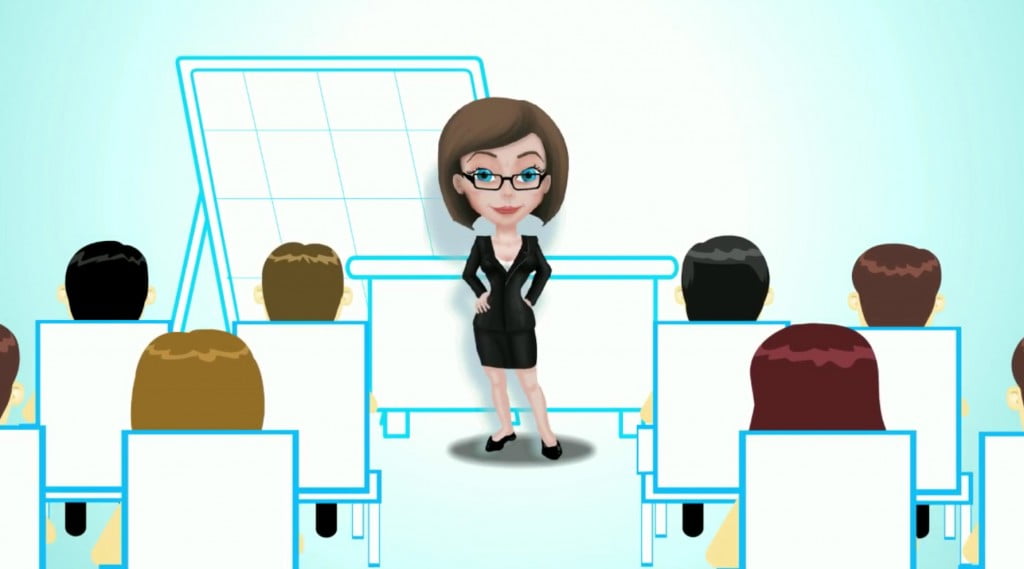Do you remember when you were sitting at your desk as a child , fidgeting restlessly with the homework in front of you because you were dying to go outside and play? Your parents probably insisted that “playing is fun, but learning is important.”
In fact, the learning did not stop once you left the house. While playing, you gained new skills, maybe social, physical or artistic, depending on the kind of game. The thing is, kids don’t notice they’re learning if it’s fun.
And as Israeli startup Wheeldo has shown, adults are not that different.
The Tel Aviv-based Startup is developing a gaming platform that brings this playful kind of learning back into the adult world of work. They claim that their platform not only makes learning fun but it also gives employees a place to share knowledge and create new relationships.
The company is now towards the end of its beta phase, and will launch in early 2014. Six international companies are already using Wheeldo’s services, including big names like Amdocs and Intel.
Related articles
- Tomigo Leverages Social Media To Help Employers Find The Perfect Person For The Job
- Cognifit: The Mental Gym To Train Your Brain
The platform provides seven different kinds of games for different types of learning, such as conducting surveys within a company, new employee orientation or teaching sales teams about a new product. All the learning manager has to do is choose the game he finds most fitting to the purpose, upload content to the platform and send out invitations to his employees.
Irad Eichler, founder and CEO of Wheeldo, tells NoCamels the program is “easy to use – you do not need to invest a lot of time and thought before you can get started. And it gives you the chance to contribute to the game. You are not only participating but also designing within the learning experience.”
Exceeding the experience
Sign up for our free weekly newsletter
SubscribeSome games are ongoing, others are set up for a certain topic and specific time frame. “However the games may also go beyond the set time,” Eichler adds and points to one example where a learning manager generated a “mountaineering game,” where each participant climbed a virtual mountain while answering questions. For each right answer the player gained points and climbed higher. Another way of gaining points was by posting questions to other players. In this specific case the manager set the game up for three days and created 40 questions. “But people simply did not stop playing,” Eichler says, “they generated 460 new questions and ended up playing for two weeks.”
[youtuber vimeo=’http://vimeo.com/78620555′]
Besides gaining knowledge about and through their employees, companies also gain insight into learning difficulties and relationships between employees. After each game, the company gets a report with three parts: Statistical information like number of participants, frequency of playing and scores; Another section with deeper insight, like what were the hardest questions, along with social maps that illustrate relationships between players and finally a section with raw data.
Boundless Gaming across Continents
Wheeldo says it complements instead of replaces traditional training: “I would not recommend to throw conventional ways of learning away, but rather establish a hybrid model,” Eichler tell NoCamels, but also emphasizes that those games enable relationships that would not exist otherwise. For example, the platform enables friendly interaction between employees located in different parts of the world. “At Amdocs, for example, 20,000 people were playing the game across many countries – from India to China and Indonesia.”
Eichler thinks that games in general are a great way to get people engaged, motivated and interacting with others and recommends everyone plays more – not only at the workplace.
He himself claims that when he plays with his kids, he mostly plays games they invent together.
Related posts

Editors’ & Readers’ Choice: 10 Favorite NoCamels Articles

Forward Facing: What Does The Future Hold For Israeli High-Tech?

Impact Innovation: Israeli Startups That Could Shape Our Future




Facebook comments